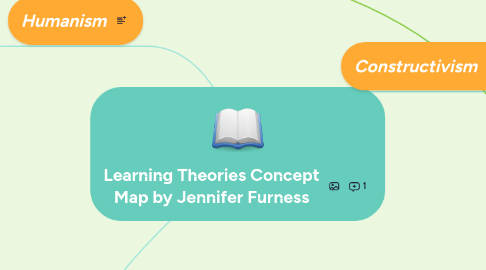
1. References
1.1. Instructional Design
1.2. Learning Theories
2. Humanism
2.1. How Experiential Learning informs instruction through facilitation and materials that are relevant to the learner
2.1.1. David Kolb
2.1.2. Carl Rogers
2.1.3. Knowledge = academic and applied skills
2.1.4. Learning = a cyclical transformation of self-initiated experiences
2.2. How Self-Determination Theory informs instruction through learner desire
2.2.1. Edward Deci & Richard Ryan
2.2.2. Knowledge = gained through connectedness to the world and motivation to learn
2.2.3. Learning = driven by intrinsic motivation from the learner
3. Constructivism
3.1. How Constructivist Theory/Discovery Learning informs instruction through sequential structured materials
3.1.1. Jerome Bruner
3.1.2. Knowledge = gained through spiral organization; learner uses bank of past and current knowledge to add to cognitive structure
3.1.3. Learning = an active process; learner discovers on their own when they feel ready by using their cognitive structures
3.2. How Social Development Theory informs instruction through interactions and active learning
3.2.1. Lev Vygotsky
3.2.2. Knowledge = gained through the Zone of Proximal Development; limited by age
3.2.3. Learning = through social interactions and working together
3.3. How Situated Learning informs instruction through situations
3.3.1. Jean Lave
3.3.2. Knowledge = gained through authentic experiences
3.3.3. Learning = embedded within context involving social interactions
